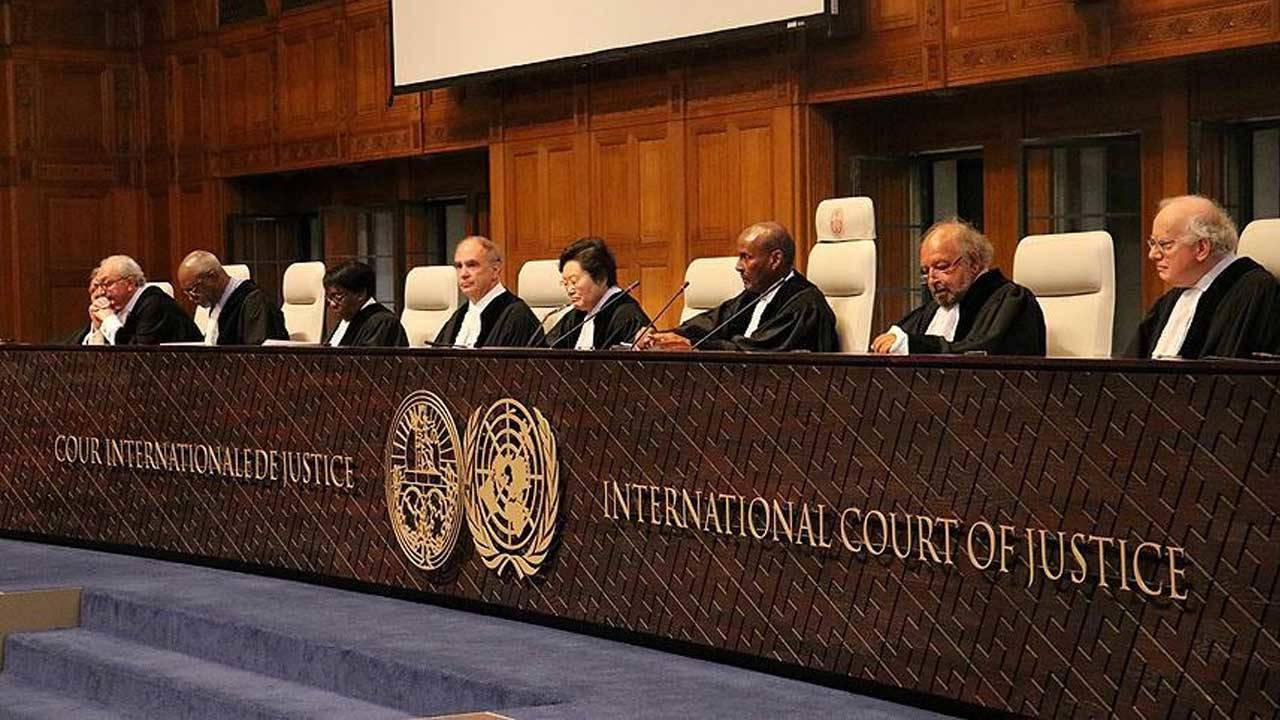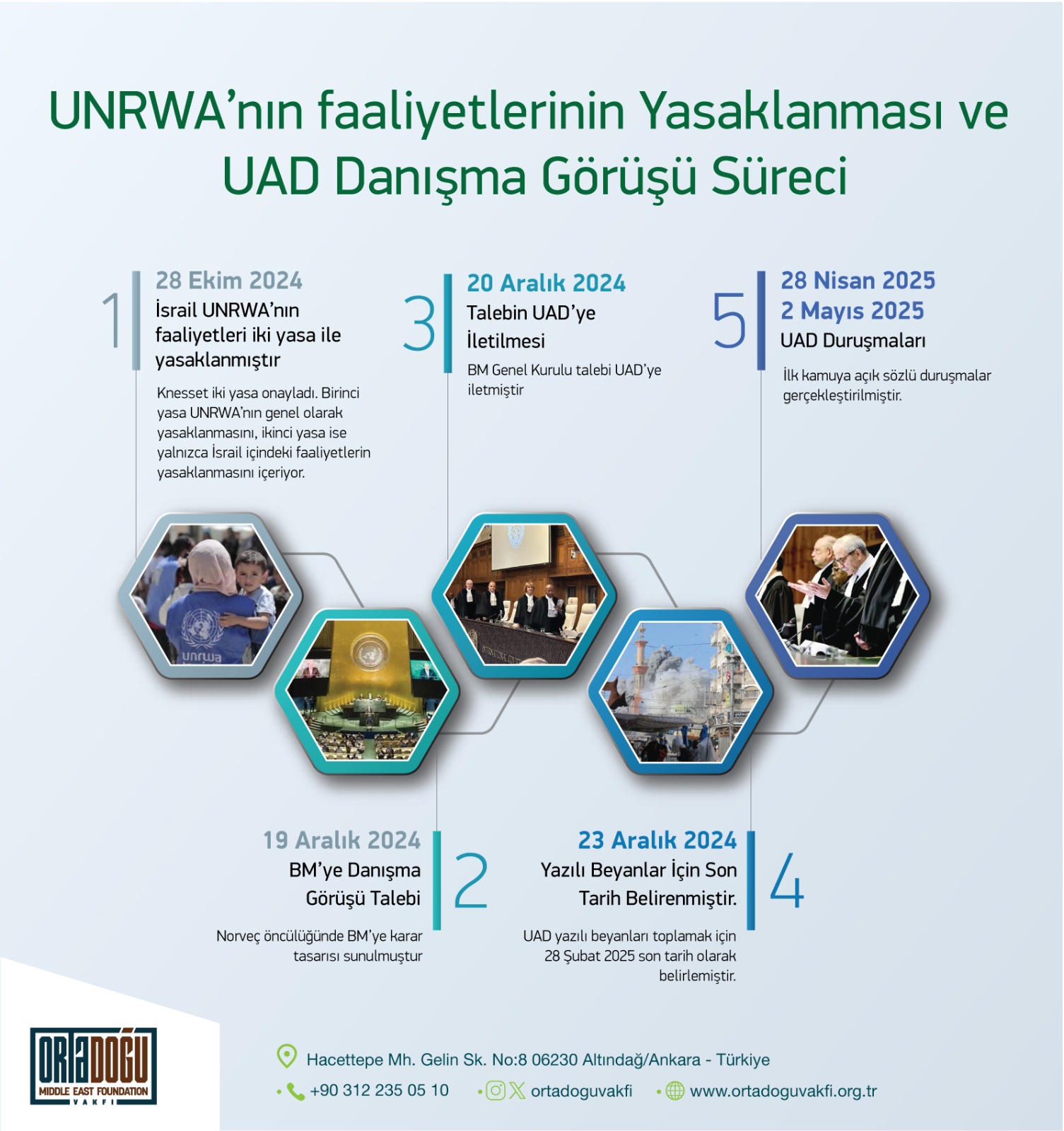
UNRWA’nın Yasaklanması: Filistin İçin Hukuki ve İnsani Sonuçlar
Bu rapor, BM Genel Kurulu’nun Aralık 2024’te Uluslararası Adalet Divanı’ndan (UAD) talep ettiği danışma görüşü sürecini, resmi BM belgeleri, UAD kayıtları ve devlet beyanları temelinde incelemektedir. İsrail’in UNRWA faaliyetlerini yasaklaması sonrasında ortaya çıkan hukuki ve siyasi sonuçları inceleyerek Birleşmiş Milletler, ABD, İsrail, Filistin ve Türkiye arasındaki etkileşimlere odaklanmaktadır. Kararın bölgesel ve küresel düzeyde sayısız tartışmaya yol açmasına rağmen, Filistin’in meşruiyeti ve mültecilerin temel haklarının korunması bağlamında en kritik meselelerden biri olmaya devam ettiği görülmektedir.
🖇️‘’UNRWA Faaliyetlerinin Yasaklanması Üzerine Uluslararası Adalet Divanı Danışma Görüşü'' başlıklı analiz yazısına ulaşmak için lütfen tıklayınız.
UNRWA Faaliyetlerinin Yasaklanması Üzerine Uluslararası Adalet Divanı Danışma Görüşü
Bu analiz, İsrail Parlamentosu’nun aldığı karar doğrultusunda UNRWA’nın faaliyetlerinin yasaklanmasının bölgesel ve küresel düzeyde doğurduğu sonuçlara odaklanmaktadır. İsrail’in bu adımı, yalnızca altı milyondan fazla Filistinli mültecinin insani hizmetlere erişimini engellemekle kalmamış, aynı zamanda geri dönüş hakkı ve mülteci statüsünün korunması gibi temel hukuki ve siyasal meseleleri de doğrudan etkilemiştir.
BM Genel Kurulu’nda yapılan oylamada 137 ülke yasağa karşı çıkarak Filistin’in meşruiyetini desteklemiş, ABD ve İsrail ise bu girişimi reddederek uluslararası hukukla çatışan bir pozisyon almıştır. Türkiye ise bağımsız Filistin devletine olan desteğini yineleyerek, İsrail’in işgalci güç sıfatıyla uluslararası hukuktan doğan yükümlülüklerini hatırlatmıştır.
Her ne kadar bu süreç sayısız tartışmayı beraberinde getirse de, UNRWA’nın varlığının sürdürülmesi insani yardımların devamlılığı kadar Filistin halkının temel haklarının korunması açısından da kritik önem taşımaktadır.



